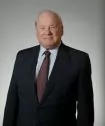TORONTO CASINO UPDATE
by Michael D. Lipton, Q.C., Kevin J. Weber, and Jack Tadman
As we first reported in January, the movement towards a Toronto casino continues apace. As we anticipated in our January issue, when Ontario's Finance Minister, Dwight Duncan, first publicly aired the concept, resistance in Toronto has begun to coalesce. Politicians have begun staking out their positions on a Toronto casino since March 12, 2012, when the Ontario Lottery and Gaming Corporation ("OLG") released its Strategic Business Review (the "Review"). The Review identified the Greater Toronto Area ("GTA") as a land-based gaming market where customer interest is not being met, and the OLG chairman confirmed shortly thereafter the province's interest in building a casino in the GTA.
The most public arena of debate has been on Toronto City Council ("Council"), where suburban councillors and Mayor Rob Ford have lined up in favour of the casino, but downtown Toronto councillors have been vocal in opposition. These downtown councillors represent the areas of the city where the most-often mentioned sites for a casino are located.
The provincial government, which has often found itself in opposition to the conservative Mayor and his allies on other issues, is clearly making common cause with them in the casino debate. Mr. Duncan recently described the proposed project with the same emphasis on non-gaming spinoffs that has been seen in communications from the Mayor's allies. The project, he stated, would create "an entertainment destination" with "some of the finest shopping, restaurants, convention facilities, park spaces, open spaces...an anchor that could create a golden mile on Toronto's waterfront."
The Strategic Business Review and the OLG chairman indicated a commitment to building a casino in the GTA, which does not necessarily mean that it must be built within Toronto city limits. The first choice of the OLG and the provincial government appears to be to locate a casino on Toronto's Lake Ontario waterfront, with the site currently occupied by the closed amusement park area at Ontario Place being seen as the prime location. However, Mr. Duncan has clearly stated that the OLG and the provincial government will look to other sites if the consent of Toronto cannot be obtained, with the cities of Hamilton and Mississauga being mentioned.
Before a site for the casino can be chosen, the OLG must comply with the requirements in Ontario Regulation 347/00, Requirements for Establishing a Casino or Charity Casino (the "Regulation") under the Ontario Lottery and Gaming Corporation Act, 1999. According to the Regulation, a municipality designated as eligible for a casino must hold a referendum before the new casino can be built. If the referendum is successful, the council of the municipality and the OLG must agree on a revenue sharing plan within 60 days of the referendum vote.
A key provision in the Regulation requires the referendum be held in conjunction with the next municipal election. Toronto's next municipal election is scheduled for October 27, 2014. If this procedure is followed, the resulting 30-month delay in selecting a location for the casino may bring to a halt the momentum set in motion by the Review and the provincial government. Such a loss of momentum could well reduce the likelihood of this casino being built at all.
Mr. Duncan has stated that new regulations are being drafted, but he has not confirmed whether or how those regulations will alter the referendum requirement set out in the present Regulation. It is likely not politically feasible for the government to remove the referendum requirement entirely. Every existing casino in Ontario was approved by a referendum, and a referendum held in 1997 in Toronto rejected the idea of a casino in the city (although neither the provincial government nor the predecessor to the OLG was seriously considering building a Toronto casino at the time of that vote). A more likely change would be to amend the referendum requirement to allow the vote to be held at an earlier date, eliminating the need to wait until the next municipal election.
It is estimated that a referendum in Toronto would cost approximately C$7 million. This adds a further wrinkle to the process, as the provincial government has stated that it will not pay for a referendum for the GTA casino. The financially pressed Toronto government is loath to accept that position.
On April 10, 2012, Council considered two motions put forward by councillors opposed to the casino concept. A motion introduced by Councillor Mike Layton, who represents the ward that includes the prime Ontario Place location, would have required Council to send the provincial government a message advising that Council desires that Ontario Place remain as "a public space for families and all Toronto residents to enjoy." Councillor Adam Vaughan put forward a motion that no casino be built in Toronto city limits unless a referendum indicates approval of the plan. Mr. Vaughan is seen as a leader of the "left" caucus on Council and a potential challenger to Mayor Ford in the next municipal election. He has made his categorical opposition to the casino known: "We don't want it downtown, we don't want it in the city and we don't want it on the waterfront...I will stand up to the province, the Mayor and anyone else who thinks casinos are a good idea."
Both motions failed to achieve the two-thirds vote of Council required for them to be brought forward for immediate open debate before Council. The motions have accordingly been directed to the Mayor's Executive Committee for consideration.
The Mayor and some of his allies have indicated a desire to hold a referendum on the casino issue; however, they have their own agenda, which may further complicate the process. Their preferred plans for the renovation of Toronto's public transit system were rejected by Council a number of weeks ago, and it may well be that during the Executive Committee deliberations they will introduce a motion to have the casino referendum expanded to include questions on the public transit issue. Again, this may add sufficient delay to the process to cause the OLG and the provincial government to consider alternative locations outside downtown Toronto.
If there is one thing that we would want our readers outside Ontario to understand, it is that the desire of the OLG and the provincial government to build a casino in Toronto is not the final word on the subject. The interplay between provincial policy and civic politics being played out in Council bears watching, as it represents something that must be carefully managed by the provincial government. While a casino may well be built elsewhere if issues in Toronto cannot be satisfactorily worked out, most observers agree that this would be far from the optimum solution.
DETROIT CASINOS' MARCH REVENUES INCREASE FROM SAME MONTH LAST YEAR: MICHIGAN GAMING CONTROL BOARD RELEASES MARCH 2012 REVENUE DATA
by Ryan M. Shannon
The Michigan Gaming Control Board ("MGCB") released the revenue and wagering tax data for March 2012 for the three Detroit, Michigan, commercial casinos. The three Detroit commercial casinos posted a collective 1.9% increase in gaming revenues compared to the same month in 2011. Aggregate gross gaming revenue for the Detroit commercial casinos also increased by approximately 5.0% in March compared to February 2012 revenue figures.
MGM Grand Detroit posted positive gaming revenue results for March 2012 as compared to the same month in 2011, with gaming revenue increasing by almost 5.0%. MGM Grand Detroit continued to maintain the largest market share among the three Detroit commercial casinos and had total gaming revenue in March 2012 of over $57.1 million. MotorCity Casino had monthly gaming revenue exceeding $43.5 million and posted a 3.76% decrease in March 2012 compared to its March 2011 revenues, but improved slightly over its February 2012 revenues. Greektown had gaming revenue of over $34.6 million, approximating a 4.5% improvement over its March 2011 revenues.
The revenue data released by the MGCB also includes the total wagering tax payments made by the casinos to the State of Michigan. The gaming revenue and wagering tax payments for MGM Grand Detroit, MotorCity Casino, and Greektown Casino for March 2012 were:
|
Casino |
Gaming Revenue |
State Wagering Tax Payments |
|
MGM Grand Detroit |
$57,181,553.70 |
$4,631,705.85 |
|
MotorCity Casino |
$43,543,183.32 |
$3,526,997.86 |
|
Greektown Casino |
$34,602,503.13 |
$2,802,802.75 |
|
Totals |
$135,327,240.15 |
$10,961,506.46 |
The content of this article is intended to provide a general guide to the subject matter. Specialist advice should be sought about your specific circumstances.


